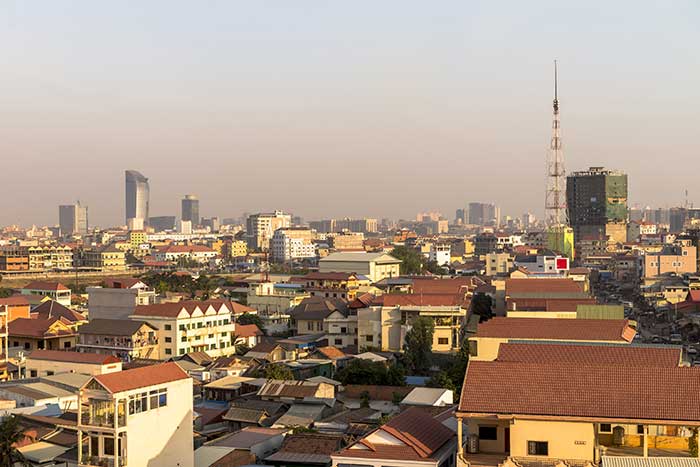web_phnompehn_shutterstock_396989959.jpg

Pnomh Penh, Cambodia. The IMF warned that the rapid growth of credit, concentrated largely in Cambodian real estate, threatens growth and stability
In a statement, the fund observed that the nation’s strong garment and construction industries, and the reduction in oil prices and real estate, were all supporting the Cambodian economy. However, rapid credit growth in the latter puts growth at risk.
“Cambodia is a fast-growing, highly open economy, and just obtained middle-income status,” said Sonali Jain-Chandra, who led an IMF visit to the country. “The main risk to the outlook arises from rapid credit growth, increasingly concentrated in real estate, which threatens to undermine economic and financial stability.”
Cambodia’s credit-to-GDP ratio had doubled to 62% by the end of 2015, higher than the average emerging markets’ level and about twice the average seen in low-income countries. Credit is growing at an average of around 30% year-on-year, and the fund warned this needed to ease.
Other risks include a significant slowdown in China, appreciation of the US dollar, weaker growth in Europe, increased uncertainty from the UK’s Brexit vote and a sharper-than-anticipated tightening in global financial conditions.
The fund also noted that the government’s fiscal deficit is projected to widen this year, from 1.6% to 2.6% of GDP, as rising spending offsets gains from efforts to increase revenues.
While it said this is still “well below” the budget target, the fund said further measures to increase revenue, including by modernising administration and tax policy, would be welcome.
Spending is also forecast to rise further, by around 1.2% of GDP, driven by an increase in the government’s wage bill.
The government announced in 2014 that it would gradually increase the salary of government workers up to 2018.
At the time, the World Bank questioned whether Cambodia could continue to afford public sector wage increases without further strengthening tax collection and compromising spending on social services.
The fund said yesterday there had already been welcome improvements in tax administration, but did recommend Cambodia “improve the structure of expenditure more towards productive pro-development and well-targeted social spending”.
“Over the last two decades, Cambodia grew rapidly, its integration with the global economy increased sharply and poverty has fallen significantly,” said Jain-Chandra. “Going forward, Cambodia’s strategic location, China’s changing trade patterns and ongoing regional integration provide further opportunities to build on this success.
“Important steps have been taken by the government to help Cambodia capitalise on these opportunities. Nonetheless, further measures are needed to boost productivity, increase competitiveness and ensure the benefits of growth are widely shared,” he concluded.












